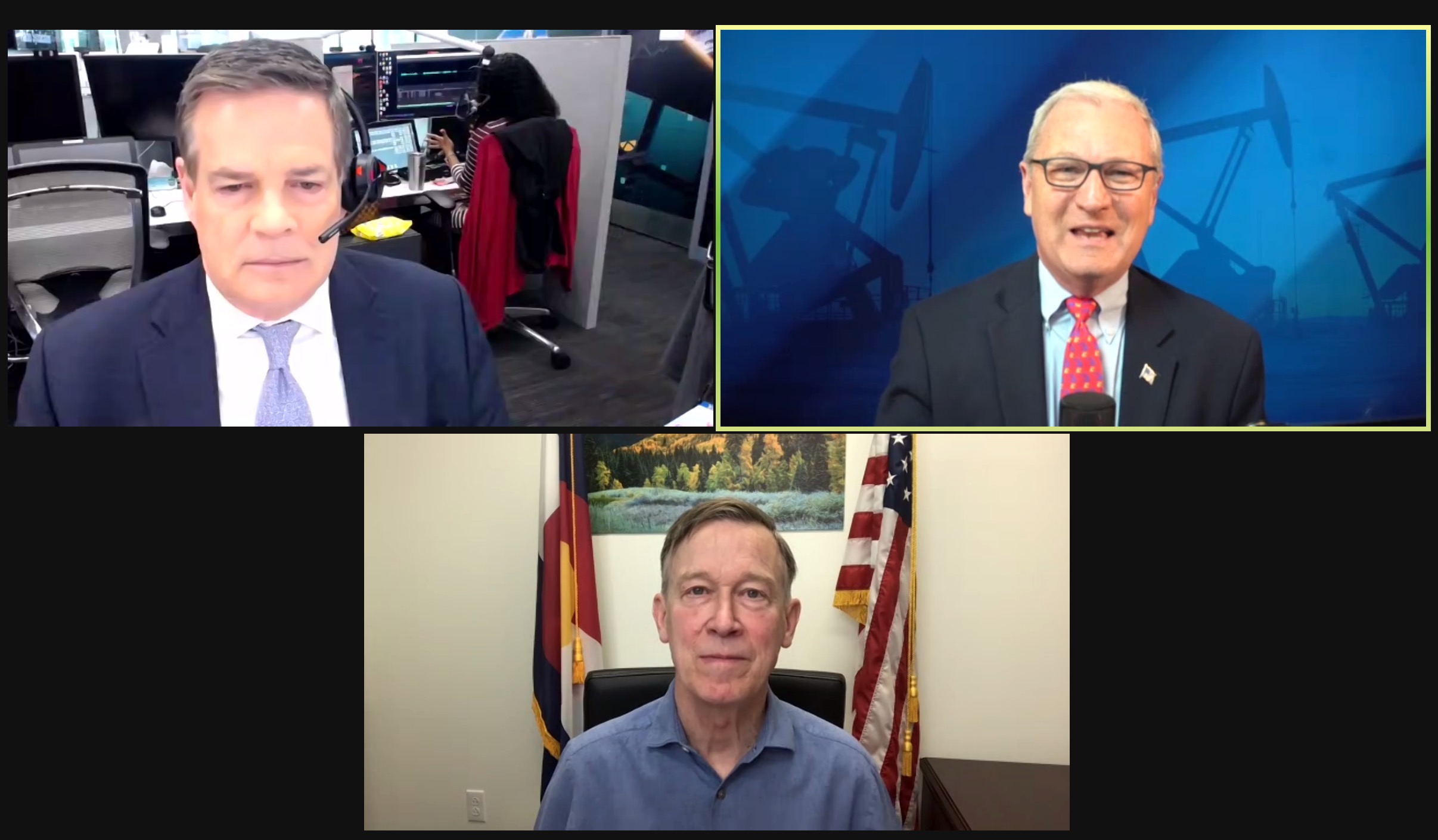WASHINGTON – U.S. Senator Kevin Cramer (R-ND), member of the Senate Banking Committee, participated in a bipartisan policymaker conversation with Senator John Hickenlooper (D-CO) and the Federal Reserve Banks of Dallas and Minneapolis regarding energy and inflation.
“There are too many negative signals being sent by the Biden Administration. On one hand, the President wants more oil and gas produced, and on the other hand, they’re lengthening the time to get permits on federal lands, reducing acreage available for lease, and canceling lease sales,” said Senator Cramer. “We cannot ignore the obvious and that is energy has been weaponized in the war in Europe. Europe is asking for our help. They are willing to build oil and natural gas infrastructure to import American products. We need to recognize this and act on it. If Europe buys oil and natural gas from the U.S. it has the added benefit of being cleaner in addition to national security. We can all meet our goals if we just come together and recognize the geopolitical moment.”
During the virtual symposium, they discussed the need for oil and natural gas related infrastructure to reduce emissions and enhance productivity, ongoing carbon capture utilization and sequestration projects, the potential of future hydrogen-based technologies, and other emerging energy innovations. Senator Cramer also reiterated the negative market signals coming from the Biden Administration worsening inflation and energy prices.
“There’s nothing wrong with a 2050 aspiration, but we have to deal with a 2022 reality, and the urgency of the two are clashing. The lack of a short-term, mid-term, and long-term plan that investors and innovators can count on is a problem. We can’t let politics get in the way. I’m more than happy to help reach these 2050 aspirational goals as long as we don’t destroy our economy in the process of getting there,” said Senator Cramer.
“I often look at John Hickenlooper on the Senate floor and think we can fix a lot of things together. He’s such a good pragmatic, commonsense guy and as a former governor he comes in really handy. Governor Hickenlooper can help us find the right mix of a federal backstop while maintaining local control in the development of energy infrastructure. Not all infrastructure is created equal. Transmission lines for electricity are different than an interstate oil pipeline, which is cited at the state level and a gas line is FERC jurisdiction. I think we can simplify a lot of that and try to bring some order to it. However, it’s not a small matter,” continued Senator Cramer.
The panel also discussed the dual mandate role of the Federal Reserve. Senator Cramer emphasized the Federal Reserve should stick to its statutory mandate of price stability and maximum employment, not mission creep into climate.
“The Fed should stay in its lane. There are lots of agencies that have lots of responsibilities. The problem is climate is not the responsibility of every agency. The Federal Reserve, in my view, has twice as many mandates as they need. If you keep the cost of money [low], you keep inflation under control, and you’re going to make a massive contribution to the economy,” said Senator Cramer. “There are plenty of things to be concerned about, but regulators need to stay in their lane.”
Senator Cramer highlighted Denbury’s carbon negative fossil fuel project in North Dakota where they are taking carbon dioxide captured from natural gas processing plants in Wyoming, piped to North Dakota, and used for enhanced oil recovery on existing wells. He also referenced his America First approach to trade and energy production and emphasized this does not constitute a carbon tax or include a domestic price on carbon.
“I have been working on an idea that would recognize those of us producing energy cleaner than others. It’s not just energy, but everything that goes into production in general, whether it be food, manufacturing, or technology. If there were a standard and you don’t meet it there would be a tariff on those imports. This is not a carbon tax or a domestic price on carbon,” said Senator Cramer. “This standard would be used as a trade tool recognizing how good we are at production. It could be a very useful tool and build some really good trade alliances where it has otherwise eluded us.”
